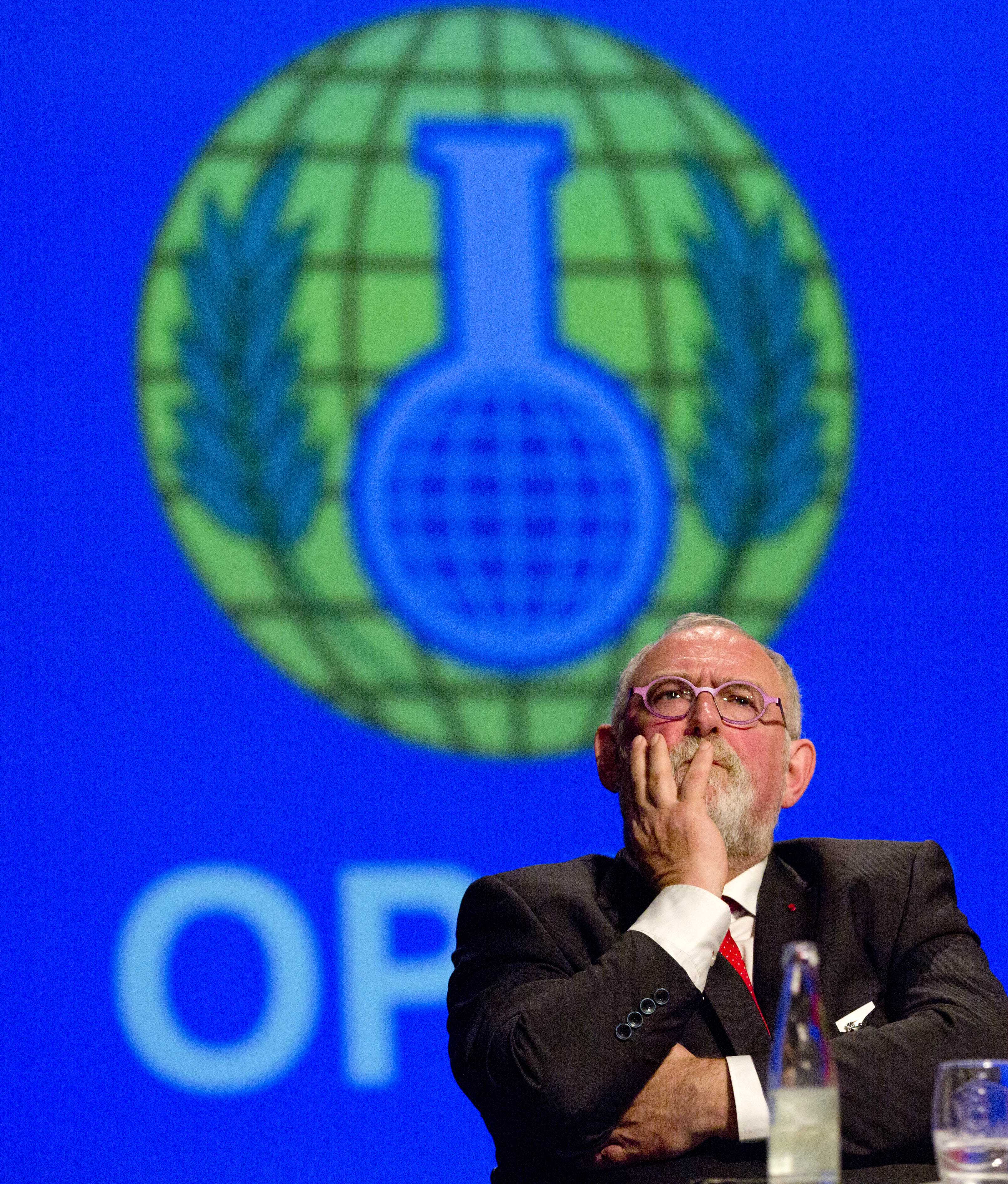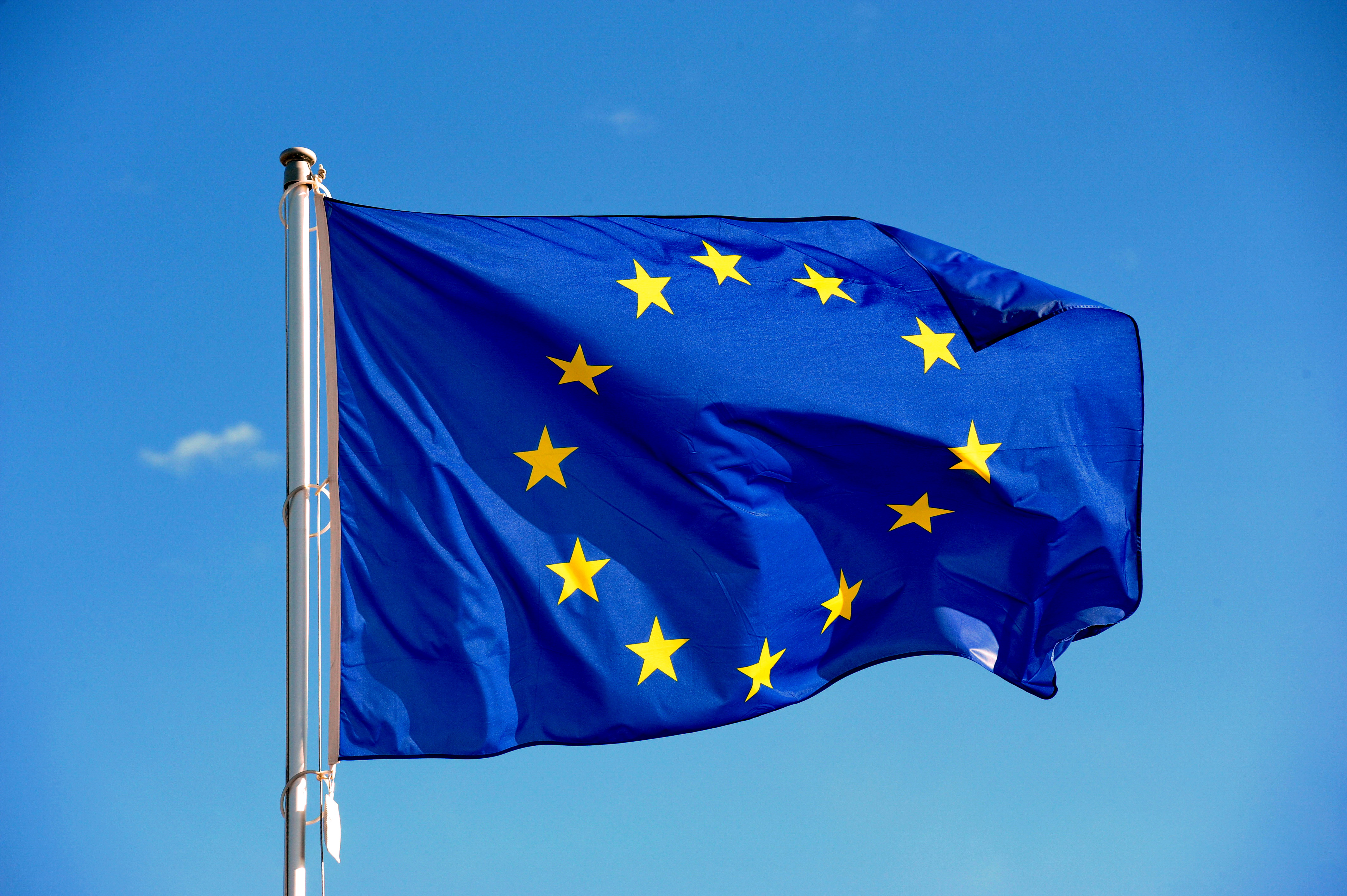The world’s most famous prize was just awarded to Colombian President Juan Manuel Santos, days after his historic peace deal with FARC rebels suffered a razor-thin defeat at the ballot box. This is not the first time the Nobel Committee has awarded its prize for peace before such ambitions have been fully realized.
Though Santos may be celebrating the surprise honor, he would do well to look at some other recipients of the prestigious prize and proceed with caution. Consider some previous winners.
Videos by VICE
The Organization for the Prohibition of Chemical Weapons

The prize’s 2013 recipient, the Organization for the Prohibition of Chemical Weapons, won for its “extensive work to eliminate chemical weapons,” most notably and recently in Syria. Yet persistent, if oft-denied, use of chemical weapons in Syria has served as a stark reminder of the numerous broken promises and human rights atrocities perpetrated during a conflict that drags into its fifth year.
The European Union

In 2012, it was the EU’s turn to receive the honor, praised for taking Europe “from a continent of war to a continent of peace.” In the subsequent years, the European project has been sorely tested on multiple fronts. It has been heavily criticized over the handling of the migrant crisis, and relationships between member countries have been strained, to say the least. Economic woes have also hit several countries in the EU, with Greece bearing the brunt of Brussels’ austerity prescriptions. This dynamic has created enormous resentment toward its wealthiest member state, Germany, which is often blamed as the architect of these countries’ misery.
Joining the pile-on, the U.K. became the first country to exit the EU, by way of a controversial referendum in June. The shock vote prompted one British politician to proclaim that “the EU is dying.” The far-right, populist groups growing in popularity across Europe may be the next significant challenge for the already beleaguered project.
Barack Obama

The committee’s most controversial laureate of late is U.S. President Barack Obama, who was nominated in 2009, only 12 days into his presidency. Obama has since gone on to take military action in Libya and sub-Saharan Africa and has continued U.S. military efforts in Afghanistan. His embrace of drone warfare has further complicated his relationship with the world’s highest honor for peace. Obama has dwarfed his predecessor and notable war-hawk George W. Bush’s use of drone warfare ten-fold, issuing more than 500 strikes to Bush’s 50. And his in-and-out tactics in Syria’s bloody conflict has frequently left both his supporters and detractors scratching their heads. The U.S. conducted more than 5,000 airstrikes in Iraq and Syria against the Islamic State in 2015 alone. The ex-secretary of the Nobel committee admitted last year that he regretted giving the award to Obama.
UN peacekeepers

In 1988, UN peacekeepers were awarded the honor, in recognition that they “made important contributions towards the realization of one of the fundamental tenets of the United Nations.” Yet this year the UN was forced to investigate claims of sexual abuse by peacekeepers in the Central African Republic, an investigation that was later widened to include allegations from Morocco and Burundi.
… and Henry Kissinger

Possibly the most controversial of all is yet another American politician, Henry Kissinger, who won the prize in 1973 for his involvement in ceasefire negotiations in Vietnam that never materialized. Kissinger’s win was controversial at the time, prompting two members of the committee to resign in protest. Despite remaining a controversial figure at home and abroad, the former Secretary of State under Richard Nixon has had a minor renaissance of late, receiving friendly mentions by Democratic presidential nominee Hillary Clinton on the campaign trail.
Awarding a prize for peace in a world of constant conflict is fraught with its own set of difficulties — the Nobel Peace Prize can be expected to achieve its goals mainly in the realm of symbolism. Here’s hoping Santos takes stock and uses his new honor’s weight to move toward lasting peace in Colombia.




